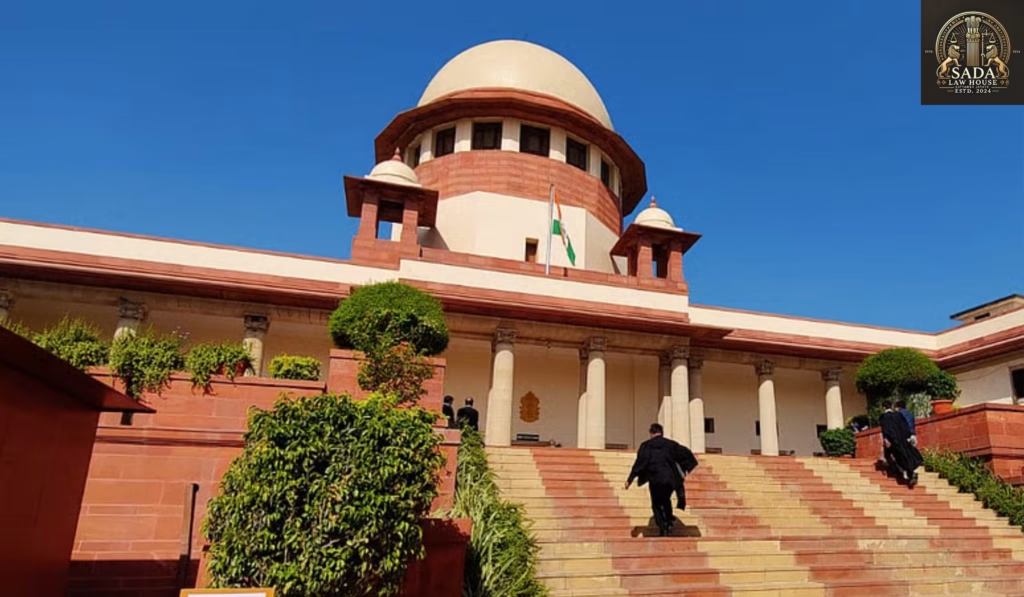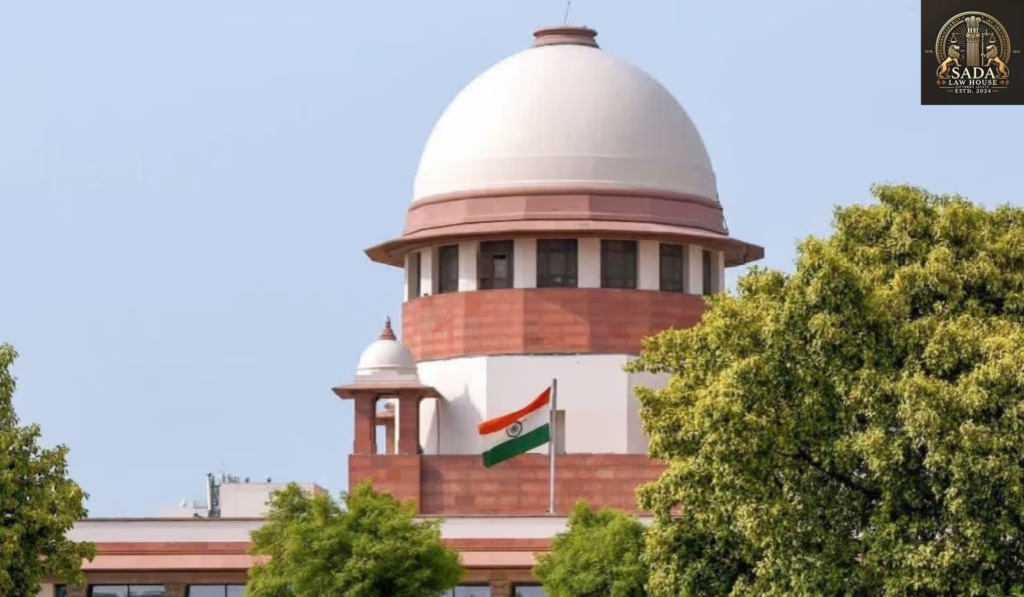Supreme Court Stays ₹317 Crore VAT Demand on Antrix, Safeguarding India’s Space Commerce Growth
Trending Today Supreme Court Stays ₹317 Crore VAT Demand on Antrix, Safeguarding India’s Space Commerce Growth Supreme Court Upholds POCSO Case Against Judge, Reinforces Child Protection and Judicial Accountability Supreme Court Rules Land Registration Isn’t Proof of Ownership: Legal Documentation Still Essential Supreme Court to Decide on Consecutive Life Sentences: Landmark Case on Criminal Sentencing in India Supreme Court Grants Bail to Andhra Journalist Over Controversial TV Show Remarks NCLT Admits Gensol Engineering to Insolvency Process Amid SEBI Probe and ₹992 Crore Debt Kerala High Court Raises Alarm Over Microplastics in Food Delivery Containers and Potential Health Risks Delhi High Court Denies Bail to Kashmiri Separatist Leader Shabir Shah in UAPA Terror Case Supreme Court Seeks Karnataka’s Response on Thug Life Film Ban Amid Kamal Haasan Controversy Air India Flight AI171 Crash: 265 Dead, 1 Survivor in Ahmedabad Tragedy Involving Boeing 787 Supreme Court Stays ₹317 Crore VAT Demand on Antrix, Safeguarding India’s Space Commerce Growth Kashish jahan 16 June 2025 The Supreme Court of India stays Karnataka’s ₹317 crore VAT demand on Antrix Corporation, protecting ISRO’s commercial wing and reinforcing legal certainty for India’s space commerce and PSU operations. Introduction: Landmark Supreme Court Stay on Antrix VAT Demand On 12 June 2025, the Supreme Court of India granted an interim stay on Karnataka’s ₹317 crore VAT demand against Antrix Corporation, the commercial arm of ISRO. This important decision protects Antrix from immediate financial strain related to satellite launch services between 2008 and 2014, ensuring smooth continuation of India’s space commerce activities. Legal Questions Surrounding VAT on Satellite Launch Services Is Antrix’s Satellite-Launch Activity Taxable Under Karnataka VAT Law? At the heart of this case lies a crucial legal question: does Antrix’s satellite launch service fall under the taxable category as per Karnataka’s VAT regulations? The Supreme Court’s interim stay signals judicial caution in imposing retrospective taxes on strategic state enterprises like Antrix, which plays a pivotal role in India’s space infrastructure. Impact on PSU Operations and Strategic Enterprises Ensuring Operational Continuity for Public Sector Units (PSUs) The stay on the ₹317 crore VAT demand provides vital relief to Antrix and potentially other government-linked enterprises. This ruling helps prevent hidden fiscal liabilities that could disrupt the operations of strategic PSUs crucial for national development. Broader Policy Implications for Taxation in Strategic Sectors Potential Reforms in Indirect Tax Laws Affecting PSUs This landmark stay may trigger a broader review and reform of VAT laws impacting PSUs and strategic sectors. Aligning tax policies with the goals of national infrastructure development and international commerce will be essential to encourage investment and growth in India’s space industry. Conclusion: Balancing Revenue Collection with India’s Space Ambitions The Supreme Court’s decision to stay Karnataka’s VAT demand on Antrix is more than just legal relief—it reflects a balanced approach between government revenue interests and uninterrupted advancement of India’s space-backed commercial projects. This ruling strengthens legal certainty for PSUs and underscores the importance of supporting strategic sectors without undue fiscal burdens. Leave a Reply Cancel Reply Logged in as Sada Law. Edit your profile. Log out? Required fields are marked * Message* Case Laws Supreme Court Affirms Right to Anticipatory Bail Across States in Matrimonial Disputes: Priya Indoria v. State of Karnataka (2023) Sada Law • June 13, 2025 • Case law • No Comments Supreme Court Rules on Governor’s Limited Discretion to Withhold Assent and Summon Punjab Legislative Assembly | State of Punjab v. Principal Secretary (2023) Sada Law • June 13, 2025 • Case law • No Comments Supreme Court Judgment on Chargesheets: Not Public Documents, No Mandatory Online Upload by Investigating Agencies | Saurav Das v. Union of India (2023) Sada Law • June 13, 2025 • Case law • No Comments 1 2 3 … 5 Next »




